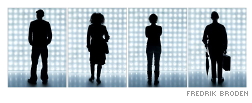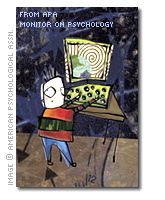Denial Is Certainly More Than a River in....So Say The Psychologists

The New York Times has a thought-provoking article today by Benedict Carey on the role of denial in the daily social lives of ordinary people. So much more than the relatively primitive defense mechanism described by Freud and his adherents, denial appears to be central to the ways in which our social lives are rendered tolerable. The crucial summary in Carey's article notes
I could not help but be struck by the way in which this article suggests in preliminary fashion an understanding of how scandals may arise among those in positions of authority or by those who "should have known better." I am thinking both about what goes on in the political world as well as the religious one as well. The doleful news that the Jesuits in the Oregon Province have just agreed to a $50 million settlement for the abuse that went on in the Alaskan mission during the past forty or so years is haunting. The painful reality that the victims experienced seems so obvious now that a final explanation of malice and sheer injustice by Jesuit superiors seems almost inescapable. But, if the work cited by Carey here among social psychologists is accurate, then a more nuanced understanding may eventually begin to emerge to explain the failure of the Church and its superiors in this horrendous scandal. Toward the end of his report, Carey summarizes: "In short, social mores often work to shrink the space in which a conspiracy of silence can be broken: not at work, not out here in public, not around the dinner table, not here. It takes an outside crisis to break the denial, and no one needs a psychological study to know how that ends." This seems like something that we'll need to think about very hard in the years ahead.Yet recent studies from fields as diverse as psychology and anthropology suggest that the ability to look the other way, while potentially destructive, is also critically important to forming and nourishing close relationships. The psychological tricks that people use to ignore a festering problem in their own households are the same ones that they need to live with everyday human dishonesty and betrayal, their own and others’. And it is these highly evolved abilities, research suggests, that provide the foundation for that most disarming of all human invitations, forgiveness. In this emerging view, social scientists see denial on a broader spectrum — from benign inattention to passive acknowledgment to full-blown, willful blindness — on the part of couples, social groups and organizations, as well as individuals. Seeing denial in this way, some scientists argue, helps clarify when it is wise to manage a difficult person or personal situation, and when it threatens to become a kind of infectious silent trance that can make hypocrites of otherwise forthright people.
Reference
Carey, B. (2007, November 20). Denial makes the world go round (Electronic version). New York Times. Retrieved from http://www.nytimes.com/2007/11/20/health/research/20deni.html?ex=1353301200&en=d185b9c072a51a1f&ei=5124&partner=permalink&exprod=permalinkThe Internet and Children: What's the Impact?

- "It's Fun, but Does It Make You Smarter?" (Internet use and academic performance)
- "Socially Wired" (Instant messaging & email; friendships; how much is too much?)
- "Web Pornography's Effects on Children" (Development of unhealthy attitudes toward sex)
- "Creating a Place for MySpace" (Advice for parents)
Washoe, 42, Dies
In the four decades since Washoe's adoption, researchers from a variety of universities and perspectives have worked to establish the parameters of animal (particularly primate) language abilities and the potential for animal-human communications. As Dr. Rosalyn King has summarized on her website, these efforts extend beyond Washoe and the team at Central Washington University to include important projects such as Sue Savage-Rumbaugh with Kanzi, Duane Rumbaugh (Georgia State University) and the Language Research Center, Matsuzawa Teturo and the chimp, Ai (Primate Research Institute, Kyoto University, Japan) and several others.
The success of these efforts has been highly disputed by such linguistic and psychological scholars as Noam Chomsky and Steven Pinker. Neither of them believe that these primates have actually learned an actual language rather than a sophisticated series of behaviors which receive reinforcement such as feeding. Some researchers have concluded that primates fail to use sign language spontaneously, an observation which undermines the notion of real language learning. Nevertheless, those who have worked with animals such as Washoe argue that their charges learn language at the level similar to the abilities of a 2 1/2 year old human child. Obviously the debate will continue. For now, though, one of the founding figures of these conversations will no longer take part in them
Resources
Alex the Parrot
- NPR Alex the Parrot, an Apt Student, Passes Away (Sept. 10, 2007)
- The Alex Foundation
- Alex (parrot) [Wikipedia]
- The Alex Foundation
- New York Times: Notebook - Alex the Parrot (Verlyn Klinkenborg, Sept. 12, 2007)
- New York Times: Alex, a Parrot Who Had a Way With Words, Dies (Benedict Carey, Sept. 10, 2007)
Washoe
- Washoe (chimpanzee) [Wikipedia]
- Great Ape Language [Wikipedia]
- Chimpanzee-Human Communications Institute (CHCI, Central Washington University)
- Friends of Washoe @ CHCI
- New York Times: Washoe, A Chimp of Many Words, Dies at 42 (Benedict Carey)